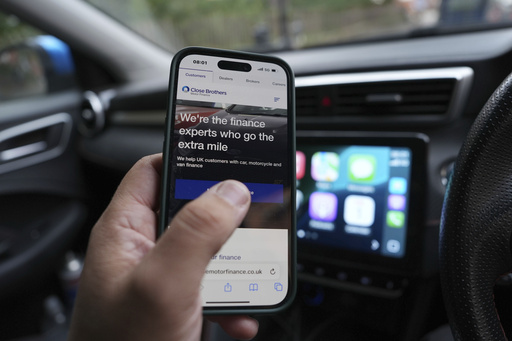LONDON – Millions of motorists across the United Kingdom stand to potentially receive substantial compensation if the Supreme Court delivers a ruling this Friday indicating that certain hire-purchase transactions had unlawful components.
At the heart of this critical legal review are three judges set to evaluate the legality of obscured commission payments made to car dealers before 2021. This decision is anticipated to have significant implications for the financial services industry, an industry that has already faced numerous scandals over the past decade, particularly regarding the faulty selling of payment protection insurance, or PPI, on loans.
According to submissions from the Financial Services Authority, the regulatory body of the sector, close to 99% of approximately 32 million auto finance agreements undertaken since 2007 encompassed commission payments to brokers. Some dealers could receive increased commissions contingent on securing higher interest rates for loans. This type of discretionary commission structure was prohibited by regulatory authorities in 2021, leading to a legal challenge initiated by three motorists.
Major banks, such as Lloyds, have proactively set aside significant financial reserves in case they are mandated to provide compensation. This judgment coming on Friday follows an earlier decision from the Court of Appeal in October, which stated that discretionary commissions were unlawful. The lower court discovered that the three motorists, who purchased cars before 2021, were either not sufficiently informed or entirely unaware that the car dealers they interacted with, acting as credit brokers, were receiving commissions from lenders for facilitating the business. Consequently, this lack of disclosure entitled them to compensation.
The dispute escalated to the Supreme Court after lenders FirstRand Bank and Close Brothers contested the appellate court’s decision during a three-day hearing in April, arguing that the decision was a significant judicial error. Additionally, the Financial Conduct Authority (FCA) contended in court that the Court of Appeal’s ruling was overly extensive.
Should the Supreme Court sides with the motorists, the decision could lead to many individuals who secured car loans before 2021 being entitled to compensation. Conversely, should the ruling favor the lenders, the potential scope for compensatory payouts would likely be curtailed considerably.
This predicament reflects a recurring issue for financial institutions accused of mis-selling financial products. In past instances, UK banks disbursed billions of pounds (or dollars) in compensation linked to PPI mis-selling. PPI was supposed to cover loan payments in situations where borrowers, such as individuals or small enterprises, could not fulfill them due to reasons like illness. However, courts determined that many were either not informed about the insurance or did not need it at all.


